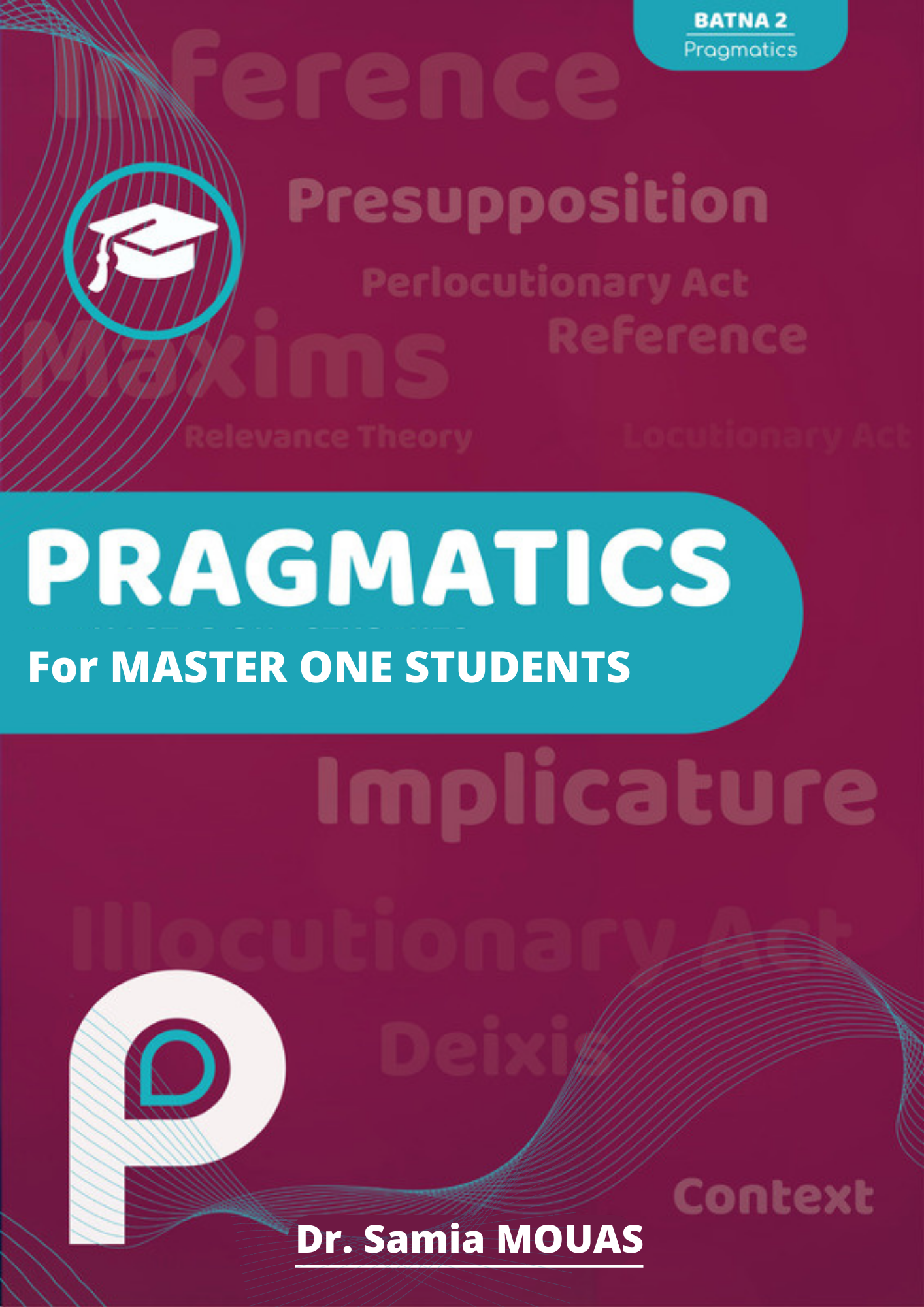Course Description:
This course provides an introduction to pragmatics, an important sub-field of linguistics.
Pragmatics is the study of contextualized meaning in language. In pragmatics, we examine the
relationship between the meaning of an utterance and the context in which the utterance is
produced. In this course, we will explore a wide range of topics in the discipline, such as
presupposition, implicature, speech acts, deixis and reference. Students will read original and
recent work in these areas, and engage themselves in analyzing different types of utterances and
their meanings as they are shaped by different pragmatic factors.
Course Objectives:
At the end of the course, students will be familiar with the basic topics in the study of pragmatics.
Exercises, assignments and the final exam will focus on the analysis of spoken and written
utterances from different perspectives. Students will learn about different strategies for
identifying patterns and labelling of pragmatic phenomena. Another goal of the course is to enable
students to write descriptive accounts of their analyses of utterances (texts/dialogues), and to
explain how the study of pragmatics contributes to a better understanding of language.
Topics to be covered:
1. Definition and overview of the field
2. Implicature
3. Presupposition
4. Speech acts
5. Deixis
6. Reference
7. Discourse structure
8. Pragmatics and semantics

- Teacher: Samia MOUAS